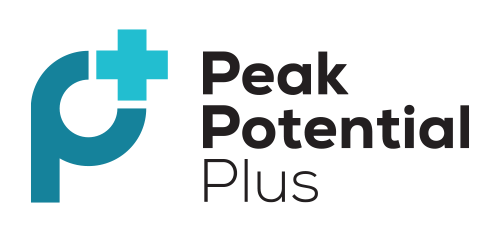Introduction
Generalized Anxiety Disorder (GAD) is a mental health condition characterized by persistent and excessive worry about various aspects of life. Coping mechanisms play a crucial role in managing the symptoms of GAD and improving overall well-being. In this article, we will explore effective coping strategies that individuals can incorporate into their daily lives to better manage GAD.
Understanding Generalized Anxiety Disorder
GAD manifests through symptoms such as excessive worrying, restlessness, irritability, muscle tension, and difficulty concentrating. Diagnosis is typically based on criteria outlined in the Diagnostic and Statistical Manual of Mental Disorders (DSM-5), including the duration and severity of symptoms. GAD can significantly impair daily functioning and diminish quality of life.
Importance of Coping Mechanisms
Coping mechanisms serve as essential tools for individuals living with GAD. They help alleviate distressing symptoms, enhance quality of life, and reduce the risk of relapse. By developing effective coping strategies, individuals can better navigate the challenges associated with GAD and maintain a sense of control over their lives.
Developing Coping Mechanisms
Cognitive Behavioral Techniques
Cognitive-behavioral therapy (CBT) is a widely recognized approach for managing GAD. Techniques such as thought restructuring involve identifying and challenging negative thought patterns. By replacing irrational beliefs with more realistic ones, individuals can reduce anxiety and improve their overall outlook on life. Additionally, mindfulness meditation fosters present-moment awareness, helping individuals to observe their thoughts and emotions without judgment.
Relaxation Techniques
Practicing relaxation techniques can help alleviate physical symptoms of anxiety. Deep breathing exercises promote relaxation by slowing down the heart rate and inducing a sense of calm. Progressive muscle relaxation involves tensing and relaxing muscle groups throughout the body, promoting physical relaxation and reducing muscle tension associated with anxiety.
Lifestyle Modifications
Regular Exercise Routine
Engaging in regular physical activity has been shown to reduce symptoms of anxiety and improve overall mental well-being. Exercise releases endorphins, neurotransmitters that promote feelings of happiness and relaxation. Incorporating activities such as walking, jogging, or yoga into one’s routine can provide a natural mood boost and help alleviate symptoms of GAD.
Healthy Sleep Habits
Prioritizing adequate sleep is essential for managing anxiety. Sleep deprivation can exacerbate symptoms of GAD, leading to increased irritability and difficulty coping with stress. Establishing a consistent sleep schedule, creating a relaxing bedtime routine, and minimizing caffeine intake can contribute to better sleep quality and overall mental health.
Social Support and Therapy
Seeking Professional Help
Professional therapy can provide individuals with coping strategies tailored to their specific needs. Cognitive-behavioral therapy (CBT) and other evidence-based interventions offer practical techniques for managing anxiety and improving coping skills. Additionally, medication may be prescribed in conjunction with therapy for individuals with severe or persistent symptoms of GAD.
Building a Support Network
Social support plays a crucial role in managing GAD. Connecting with friends, family members, or support groups can provide emotional validation and practical assistance. Building a strong support network can help individuals feel less isolated and better equipped to cope with the challenges of GAD.
Stress Management Strategies
Time Management Skills
Effective time management can help reduce feelings of overwhelm and anxiety. Breaking tasks into smaller, manageable steps can make them feel more achievable. Prioritizing tasks based on importance and deadlines can help individuals focus their energy on what matters most, reducing stress and promoting a sense of control.
Setting Realistic Expectations
Setting realistic expectations for oneself can help prevent feelings of inadequacy and overwhelm. Recognizing one’s limits and setting achievable goals can prevent burnout and promote a healthier work-life balance. By acknowledging that perfection is unattainable, individuals can reduce self-imposed pressure and cultivate self-compassion.
Avoiding Triggers
Identifying Personal Triggers
Understanding personal triggers for anxiety can help individuals anticipate and manage their symptoms more effectively. Common triggers may include certain situations, environments, or thought patterns. By identifying triggers, individuals can develop coping strategies to minimize their impact on daily life.
Implementing Avoidance Techniques
In some cases, avoiding or minimizing exposure to known triggers can help reduce anxiety symptoms. This may involve setting boundaries, avoiding stressful situations whenever possible, or practicing relaxation techniques before facing triggering situations. While avoidance is not always feasible, it can be a helpful short-term strategy for managing acute episodes of anxiety.
Self-Care Practices
Engaging in Hobbies and Interests
Taking time to engage in activities that bring joy and fulfillment can help alleviate symptoms of anxiety. Hobbies such as painting, gardening, or playing musical instruments provide opportunities for self-expression and relaxation. Making time for enjoyable activities can provide a welcome distraction from worries and promote a sense of well-being.
Practicing Self-Compassion
Practicing self-compassion involves treating oneself with kindness and understanding, especially during times of difficulty. Acknowledging that it’s okay to struggle and extending oneself the same compassion as one would to a friend can help alleviate feelings of self-criticism and inadequacy. Cultivating self-compassion fosters resilience and promotes emotional well-being.
Monitoring Progress and Seeking Help
Keeping a Symptom Journal
Keeping a journal can help individuals track their anxiety symptoms and identify patterns over time. Recording thoughts, emotions, and behaviors associated with anxiety can provide valuable insights into triggers and coping strategies that are most effective. A symptom journal can also serve as a tool for monitoring progress and identifying areas for improvement.
Recognizing When to Seek Professional Assistance
While coping mechanisms can be helpful for managing GAD, it’s essential to recognize when professional help may be necessary. Persistent or severe symptoms that interfere with daily functioning may indicate the need for therapy or medication. Seeking assistance from a mental health professional can provide additional support and guidance in managing GAD effectively.
Conclusion
Coping mechanisms are valuable tools for managing Generalized Anxiety Disorder in everyday life. By incorporating cognitive-behavioral techniques, relaxation strategies, and lifestyle modifications, individuals can reduce symptoms, improve coping skills, and enhance overall well-being. Additionally, seeking social support, practicing stress management techniques, and prioritizing self-care can further contribute to effective anxiety management. By implementing these strategies consistently, individuals can better navigate the challenges of GAD and lead fulfilling lives.



















